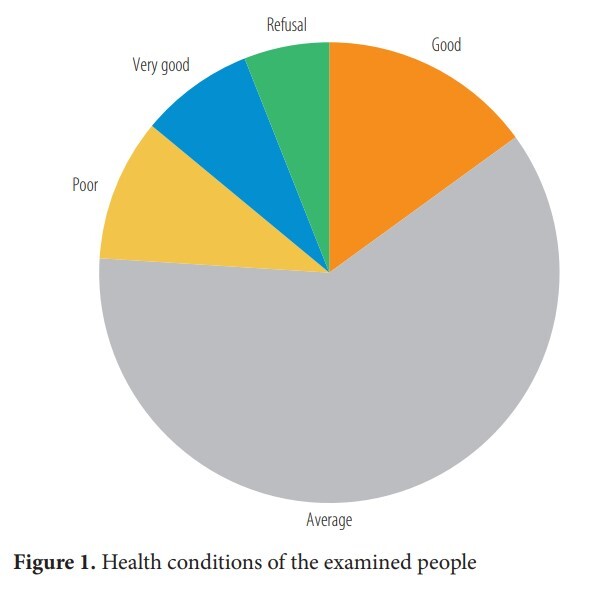Online first
Current issue
Archive
Most cited in 2024
About the Journal
Editorial Office
Editorial Board
Copyright and self-archiving policy
Information clause on the processing of personal data
Declaration of accessibility
Instructions for Authors
Instructions for Reviewers
Contact
Reviewers
2024
2023
2022
2020
2021
2019
2018
2017
2016
2015
2014
2013
Editing and translations
ORIGINAL PAPER
Ageing and its consequences – the use of virtual reality (VR) as a tool to visualize the problems of the elderly
1
Nofer Institute of Occupational Medicine, Łódź, Poland
2
Lodz University of Technology, Łódź, Poland (Institute of Mechatronics and Information Systems)
Online publication date: 2023-07-31
Corresponding author
Med Pr Work Health Saf. 2023;74(3):159-70
KEYWORDS
ageingphysical activityvirtual realityelderly peopleold-age-simulating equipmentpsychological problems of elderly
TOPICS
ABSTRACT
Background: The population ageing phenomenon is mainly attributable to the increasing proportion of people >60 years of age. This demographic situation requires more attention to the needs of the elderly. Given the lack of effective methods to expand the knowledge of and increase sensitivity to elderly people’s problems, especially among the younger generation, an attempt has been made to use virtual reality (VR) to prepare an educational tool focused on these problems. This paper will focus on the use of VR in depicting fundamental problems in the daily live of older people. Material and Methods: For project purposes, a questionnaire (26 question) was developed, concerning data on socio-demographic situation, health and physical conditions; social, living and housing support needs. Additionally, qualitative interviews were conducted with elderly people regarding their needs about housing arrangements and daily activities. It was distributed to 100 people, 34 completed questionnaires were obtained from 30 women and 4 men. The study results were intended as information that would provide the basis for developing VR scenarios, not for the epidemiological purposes. Results: The mean age of the respondents was 73.7±7.5 (60‒86 years). Different situations, as heavy housework, lifting/carrying heavy objects, lifting hands above the shoulder level, bending and squatting were identified that pose problems for elderly people. Based on these results, 3 scenario proposals were prepared, including situations: in the bathroom, in the supermarket, on a trip to the city. These scenarios were used to prepare the exercises in VR in the frame of European project – the Mixed Reality on Universal Design’s Secret Service (Mr. UD) Project. Conclusions: The use of immersive technology such as VR can be beneficial for young people to be able to see perspectives of the elderly. Students from various fields (medicine, nursing, future engineers, designers, sociologists, etc.) may feel like the elderly and experience their daily challenges. Med Pr. 2023;74(3):159–70
Share
RELATED ARTICLE
We process personal data collected when visiting the website. The function of obtaining information about users and their behavior is carried out by voluntarily entered information in forms and saving cookies in end devices. Data, including cookies, are used to provide services, improve the user experience and to analyze the traffic in accordance with the Privacy policy. Data are also collected and processed by Google Analytics tool (more).
You can change cookies settings in your browser. Restricted use of cookies in the browser configuration may affect some functionalities of the website.
You can change cookies settings in your browser. Restricted use of cookies in the browser configuration may affect some functionalities of the website.






